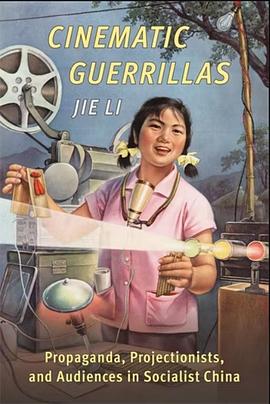
Propaganda, Projectionists, and Audiences in Socialist China
Jie Li
overview
Cinematic Guerrillas considers cinema’s meanings for revolution and nation building; successive generations of projectionists; workers, peasants, and soldiers; women and ethnic minorities; and national leaders, local cadres, and cultural censors. By reading diverse, vivid, and often surprising accounts of moviegoing, Li excavates Chinese media theories that provide a critical new perspective on world cinema.
contents
Acknowledgments
Introduction: Revolutionary Spirit Mediumship
Part I: Projectionists as Media Infrastructure
1. Cinematic Nation-Building: Media Networks and Spiritual Battlegrounds
2. Mobile Projectionists and the Things They Carried
3. The Three Sisters Movie Team: Projecting Models, Model Projectionists, and Female Projectionists
4. The Cost of Spiritual Food: A Ritual Economy of Rural Cinema
Part II: Audiences as Creative Agents
5. The Hot Noise of Open-Air Cinema
6. Guerrilla Cinema and Guerrilla Reception
7. Transcultural Guerrillas: The Reception of Foreign Films in Socialist China
8. Poisonous Weeds and Censorship as Exorcism
Epilogue
Appendix: Interviews
Notes
Index